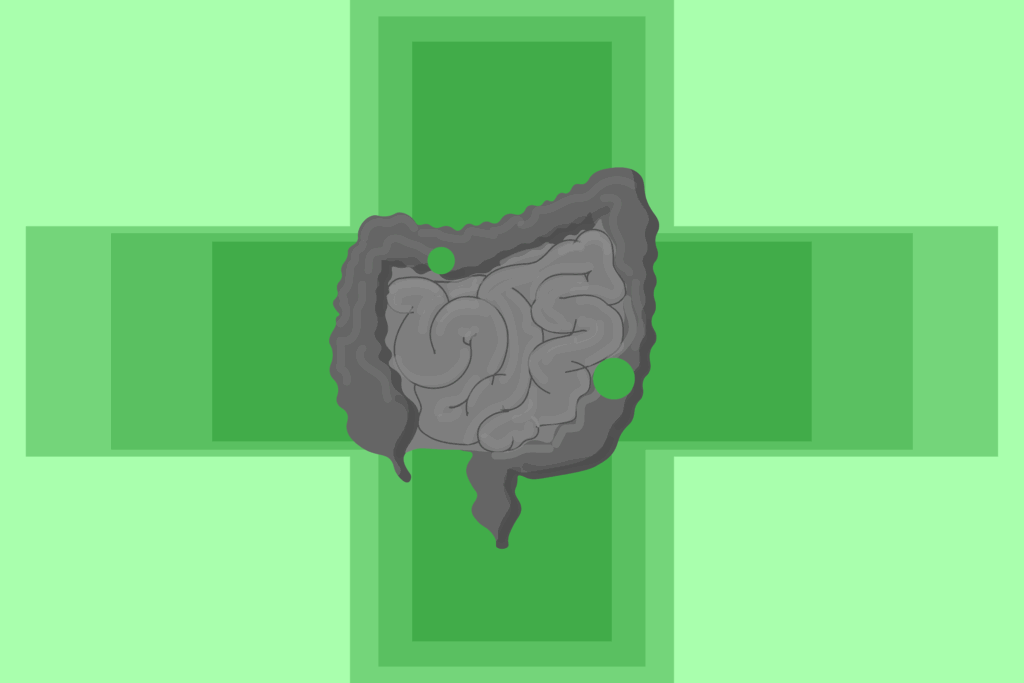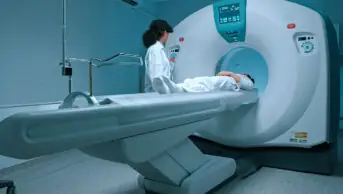
Charlotte Gurr
Every 12 minutes in the UK someone is diagnosed with bowel cancer — that is around 120 people each day and 44,000 people each year1.
As someone who both writes and speaks about bowel cancer regularly, I still find those statistics jarring.
Perhaps more alarming is that half of those people are diagnosed at the later stages of disease, at stage three or four. Survival following a diagnosis of bowel cancer is directly related to staging. Those diagnosed at the earliest stage (stage one) have a 90% chance of surviving for five years or more. For those diagnosed at the most advanced stage (stage four), this falls to a 10% chance of survival.
More alarming still is that bowel cancer rates are rising in younger adults1. People born in the 1990s have double the risk of colon cancer than those born in the 1950s and four times the risk of rectal cancer2. Although there is little evidence on the causes of early-onset bowel cancer, diet and lifestyle factors have been identified as the most likely causes. Genomic mutations are more common in early-onset bowel cancer, which itself is a poor prognostic factor3–6.
It is crucial that we rule the disease out first and fast if we are to improve outcomes for those affected by bowel cancer
Bowel Cancer UK works tirelessly to not only improve access to early diagnosis and treatment, but also to raise awareness of the signs and symptoms of bowel cancer. Results of a 2022 study revealed that 31% of adults in the UK could not name one symptom of bowel cancer3.
Red-flag symptoms of bowel cancer include rectal bleeding, a change in bowel habit, abdominal pain, unexplained weight loss and tiredness (e.g. iron deficiency anaemia). The non-specific nature of these symptoms makes it difficult for primary care healthcare professionals because they mirror that of many benign diseases, such as haemorrhoids, irritable bowel syndrome or diverticular disease.
Given the statistics, it is crucial that we rule the disease out first and fast if we are to improve outcomes for those affected by bowel cancer.
Pharmacies are often the first port of call for people with non-specific bowel symptoms seeking over-the-counter medicines for assumed benign conditions. A conversation with a pharmacist or a member of the pharmacy team about symptoms, the length of time and frequency with which they occur, and whether a diagnosis is confirmed or assumed, might just be the trigger for reluctant people to seek referral for investigations to rule out bowel cancer.
The quantitative faecal immunochemical test (FIT), part of the national bowel cancer screening programme, is a simple stool test that can be performed easily at home by taking a scraping of faeces and sending it off for analysis. The test detects a breakdown product of human haemoglobin and those people with a positive FIT have been shown to have a greater than 10% chance of having a diagnosis of bowel cancer. Eligible patients are sent the test to return and complete every two years with the ages and abnormal thresholds set across the UK shown below1:
- England, aged 50–74 years (120Ug/g);
- Wales and Scotland, aged 50–74 years (80Ug/g);
- Northern Ireland, aged 60–74 years (120Ug/g).
The FIT is a useful tool for healthcare professionals working in primary care to inform when a suspected cancer referral is necessary. It is important to remember that the abnormal threshold for a symptomatic FIT is lower (from 10Ug/g—20Ug/g depending on the nation1) in the symptomatic setting. For those in primary care assessing patients with suspected symptoms of bowel cancer, it is important to request the test, even if a normal bowel cancer screening test has been returned. However, patients may experience several barriers when seeking help for symptoms of bowel cancer or completing the bowel cancer screening test. People tell us they were embarrassed or frightened, and it may be that they simply were unaware of the signs of bowel cancer. Stoicism may also contribute to a reluctance to seek help, alongside cultural barriers.
At Bowel Cancer UK, we are fortunate that people affected by bowel cancer generously share their stories to help raise awareness. Our case studies demonstrate how pharmacists and pharmacy teams, by encouraging open conversation, have prompted discussions with GPs that resulted in referral and ultimately a diagnosis of bowel cancer7. The education team has received increasing numbers of requests to provide online and face-to-face teaching for pharmacists and to provide pharmacy toolkits that can support raising awareness and, where appropriate, prompt referral to rule out bowel cancer.
While the statistics highlight the urgency of this work, the progress made and willingness and enthusiasm of pharmacists and pharmacy teams to work alongside us for real change that can lead to earlier diagnosis for those affected by bowel cancer is something to be proud of.
For more information about how Bowel Cancer UK can help, please visit our information and resources for healthcare professionals.
- 1.Bowel Cancer. Bowel Cancer UK. Accessed October 2025. https://www.bowelcanceruk.org.uk/about-bowel-cancer/bowel-cancer/
- 2.Siegel RL, Fedewa SA, Anderson WF, et al. Colorectal Cancer Incidence Patterns in the United States, 1974–2013. JNCI: Journal of the National Cancer Institute. 2017;109(8). doi:10.1093/jnci/djw322
- 3.More than four in ten cannot name a single bowel cancer symptom. Bowel Cancer UK. April 1, 2022. Accessed October 2025. https://www.bowelcanceruk.org.uk/news-and-blogs/news/more-than-four-in-ten-cannot-name-a-single-bowel-cancer-symptom/
- 4.Bailey CE, Hu CY, You YN, et al. Increasing Disparities in the Age-Related Incidences of Colon and Rectal Cancers in the United States, 1975-2010. JAMA Surg. 2015;150(1):17. doi:10.1001/jamasurg.2014.1756
- 5.Lai B, Li Z, Li J. Cruciferous vegetables intake and risk of colon cancer: a dose–response meta-analysis. BMC Gastroenterol. 2025;25(1). doi:10.1186/s12876-025-04163-9
- 6.Wu CWK, Lui RN. Early-onset colorectal cancer: Current insights and future directions. WJGO. 2022;14(1):230-241. doi:10.4251/wjgo.v14.i1.230
- 7.Real life stories. Bowel Cancer UK. Accessed October 2025. https://www.bowelcanceruk.org.uk/how-we-can-help/real-life-stories/


